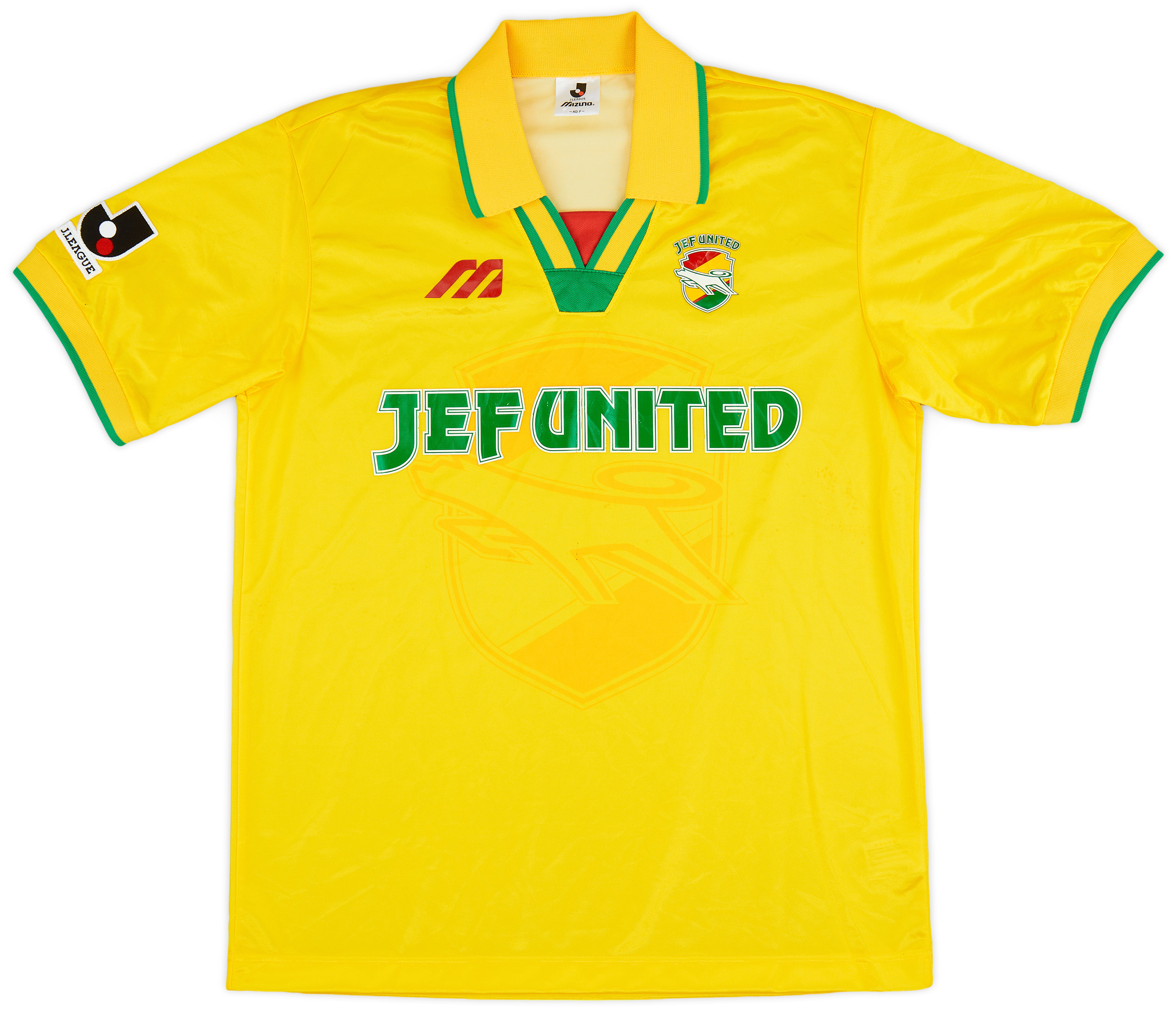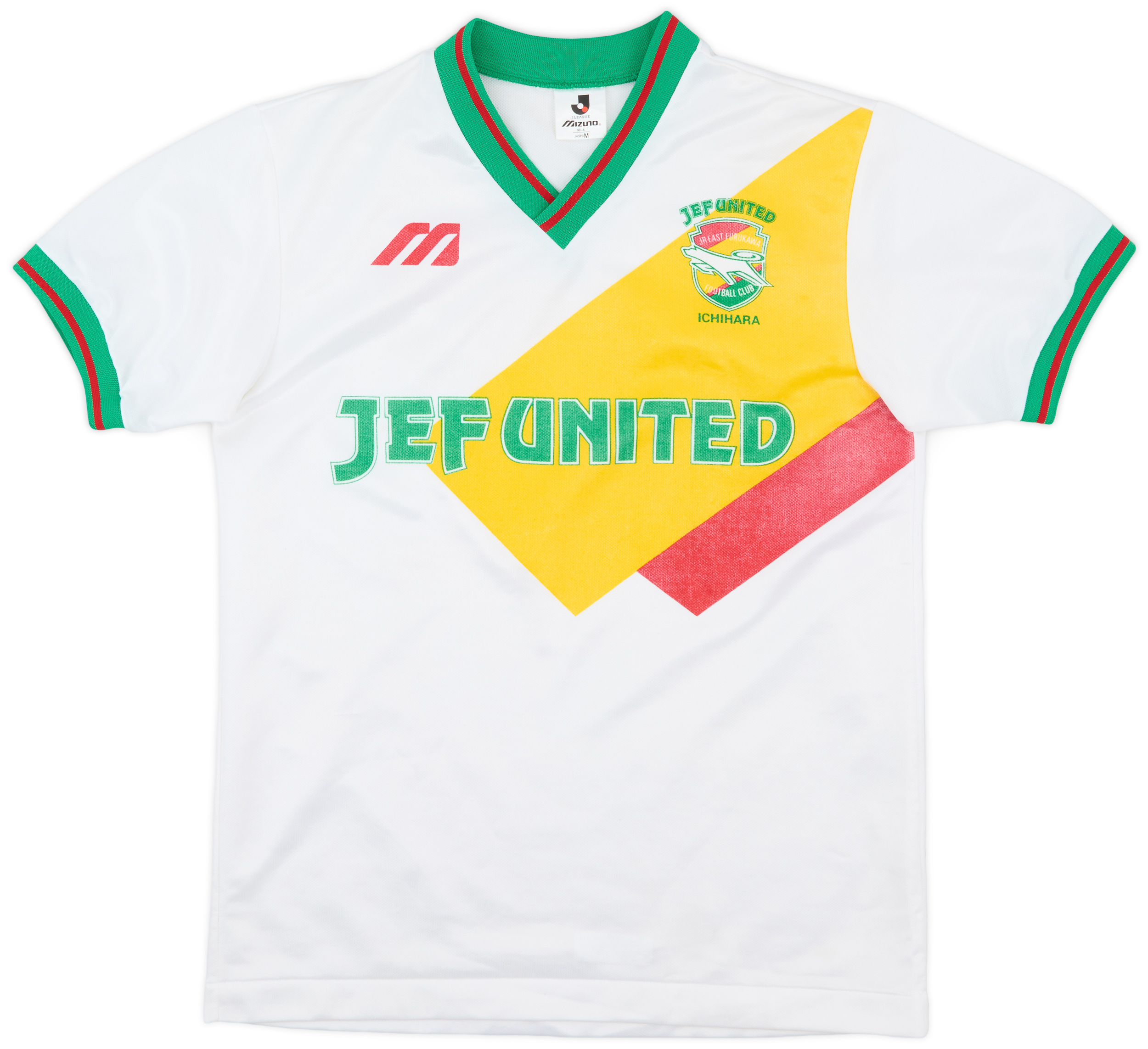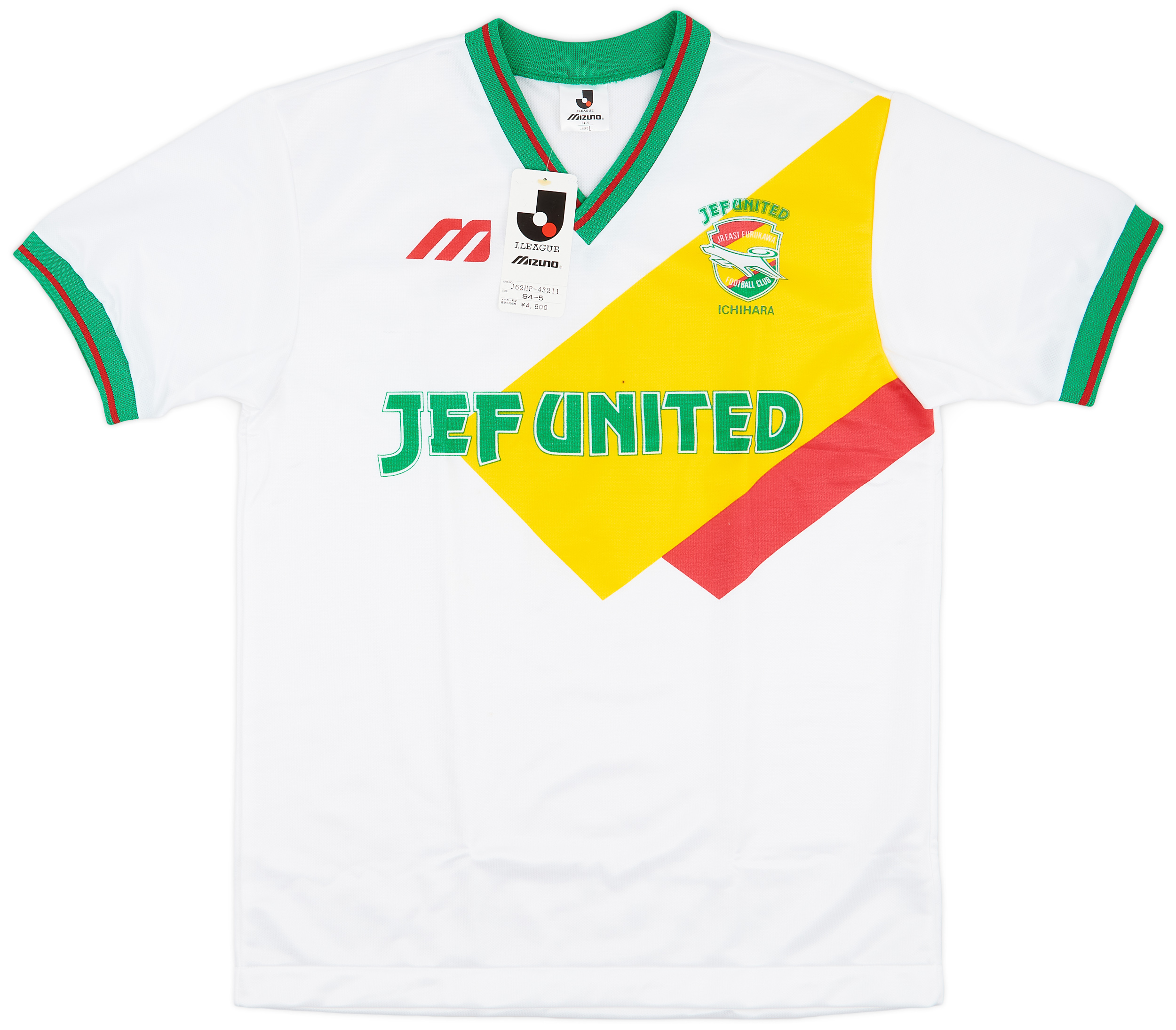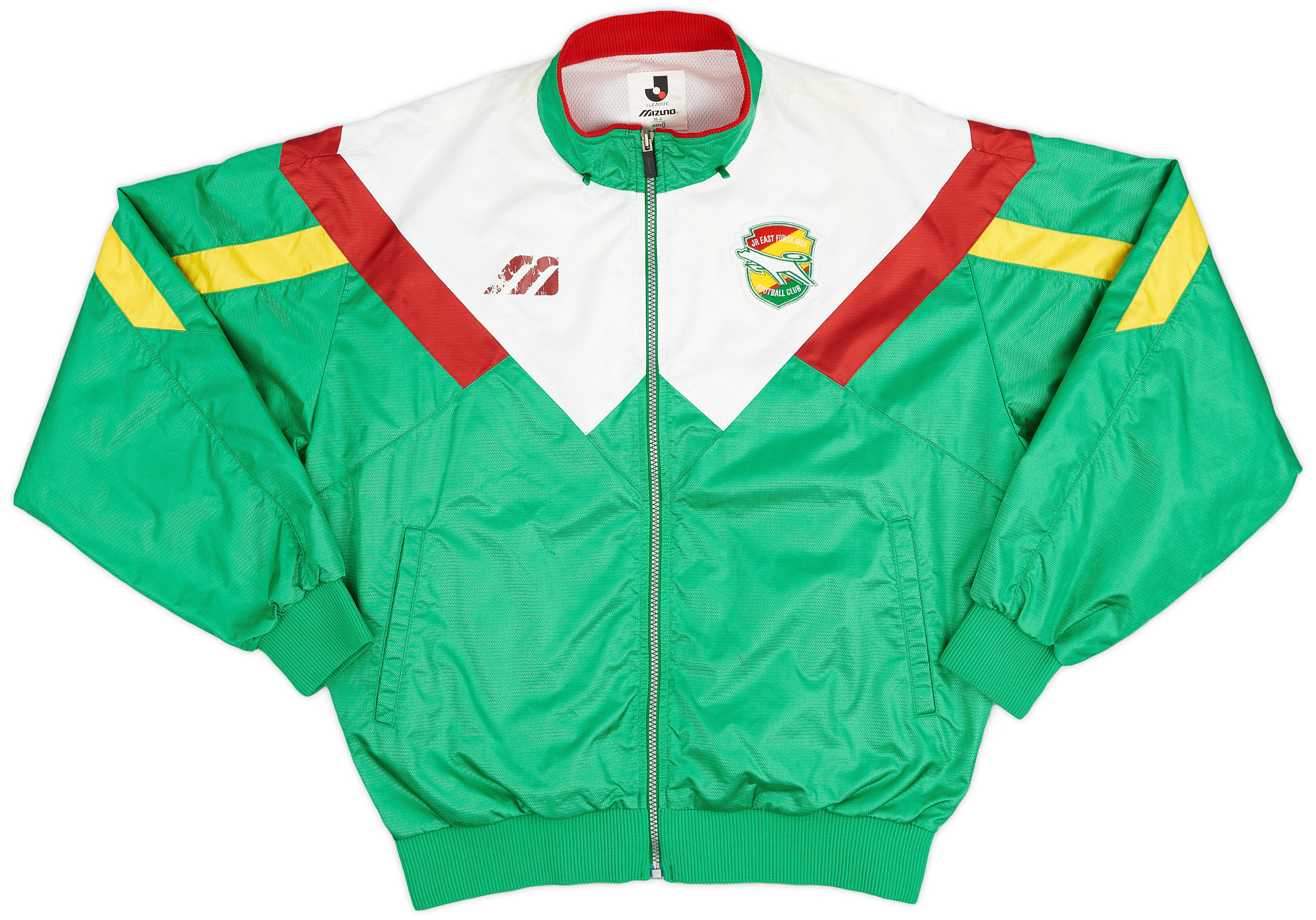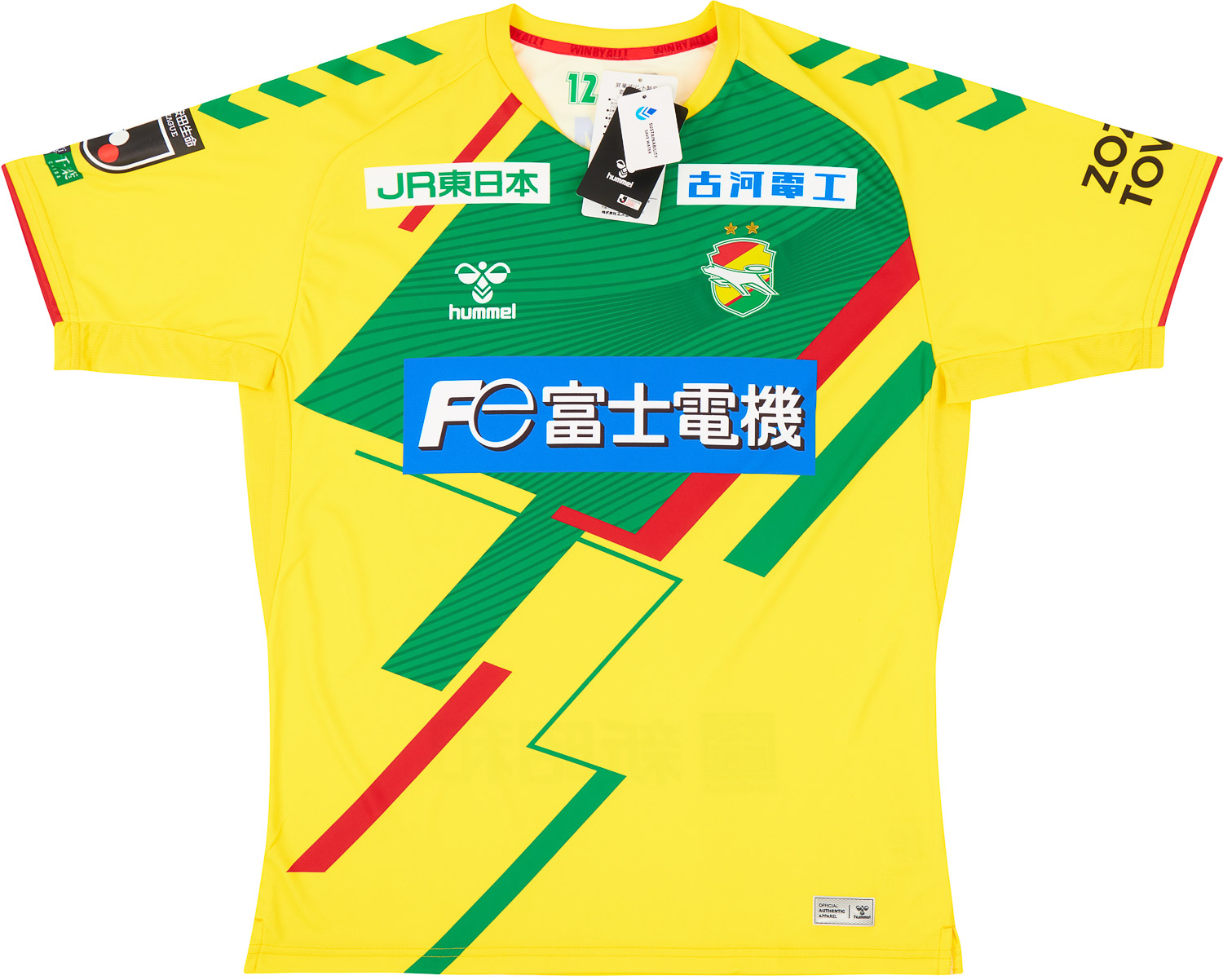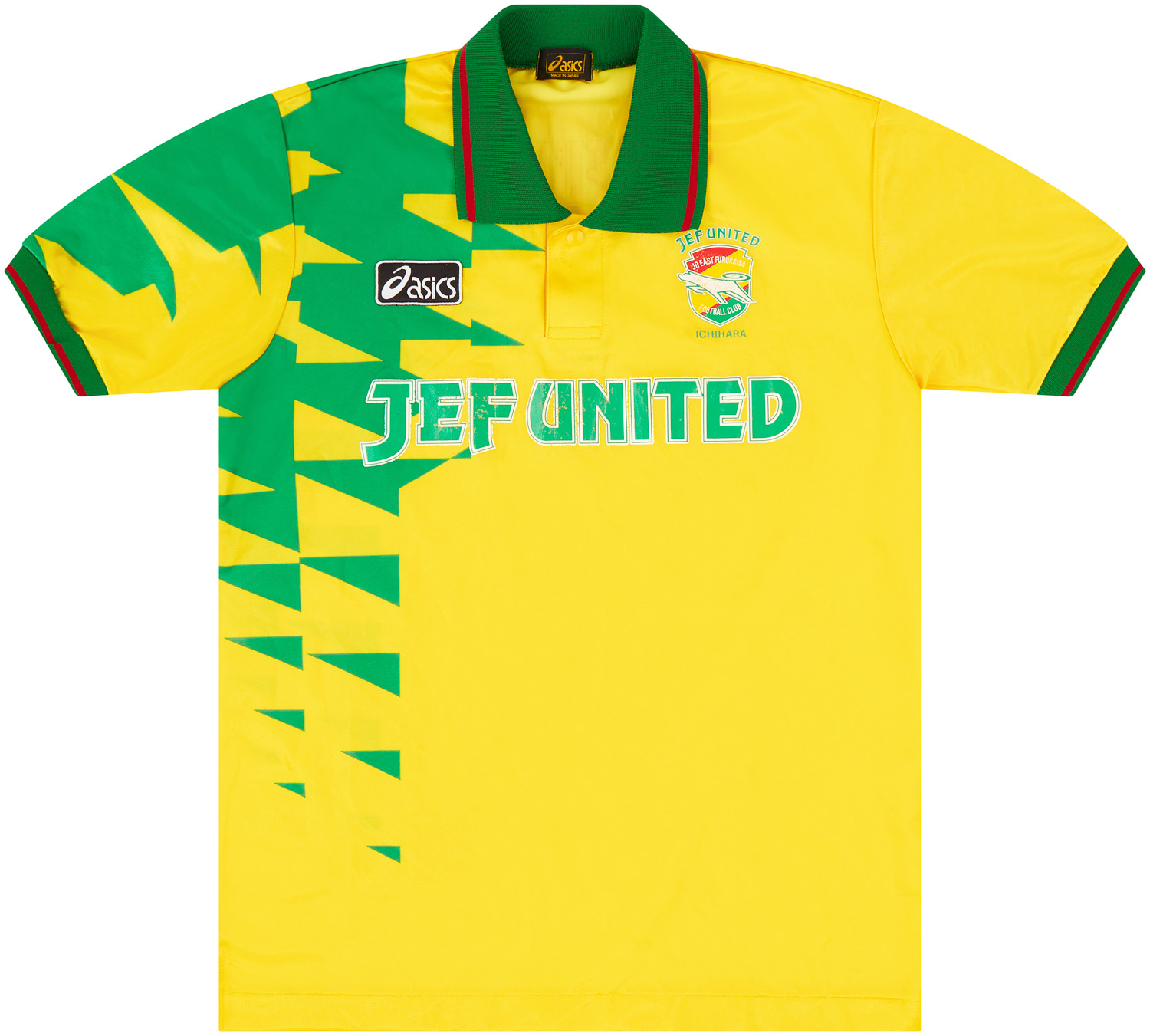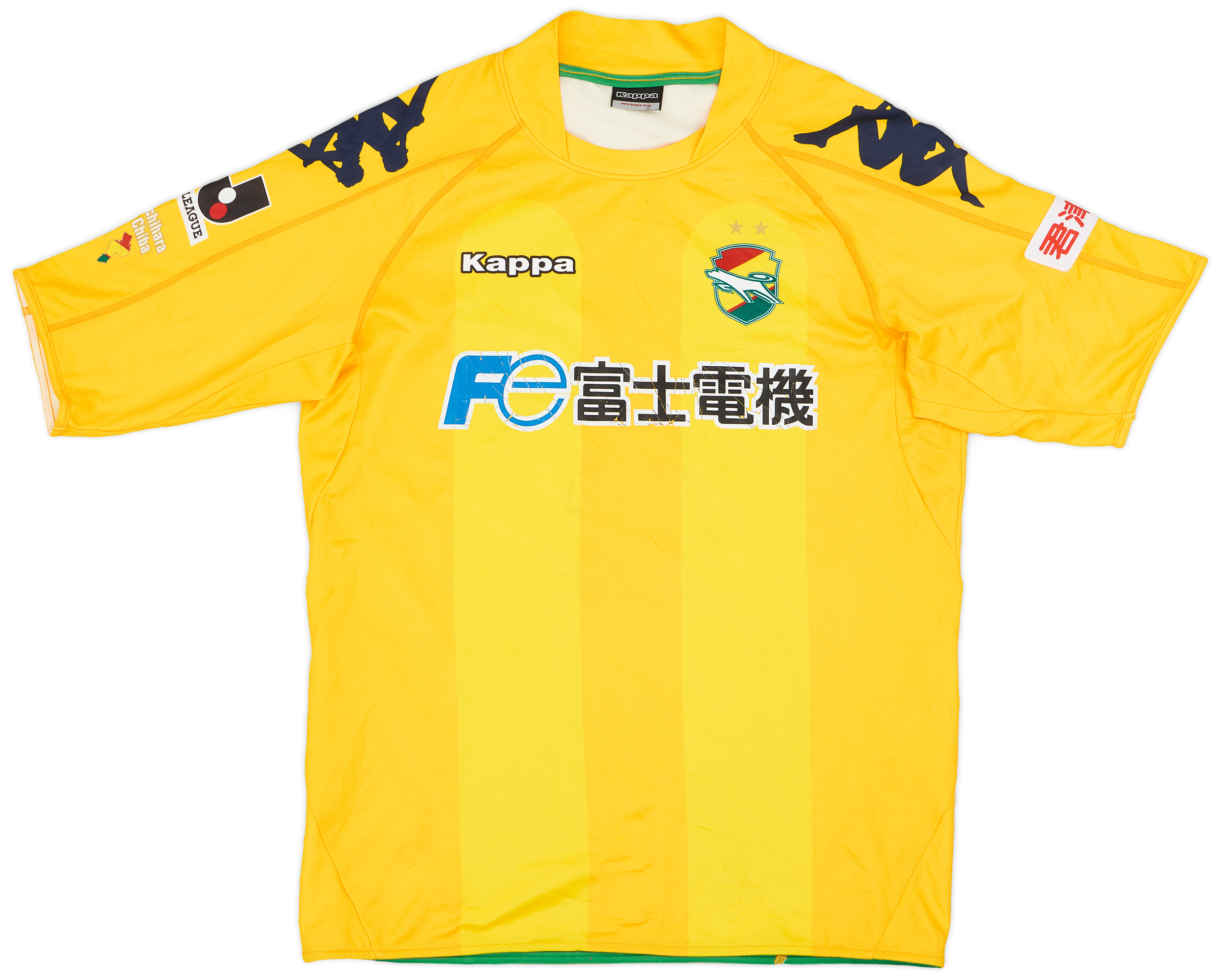JEF United
Introduction JEF United Ichihara Chiba, often simply referred to as JEF United, stands as a testament to the rich football culture in Japan. Founded in 1946, the club’s identity is deeply rooted in its connection to the local community of Chiba Prefecture. Originally established as the “Chiba Lotte,” its transformation into JEF United in the […]
1997-98 JEF United Home Shirt - 8/10 - (L)
207.99£ - ca: €245
1994-95 JEF United Away Shirt - 8/10 - (L)
207.99£ - ca: €245
1994-96 JEF United Mizuno Track Jacket - 9/10 - (XL)
194.99£ - ca: €230
2002 JEF United Home L/S Shirt Muto #7 - 7/10 - (L)
177.99£ - ca: €210
2011 JEF United Away Shirt (L)
177.99£ - ca: €210
1993 JEF United Mizuno Training Shirt - 9/10 - (M)
148.99£ - ca: €176
1994-95 JEF United Mizuno Training Shirt (L)
148.99£ - ca: €176
1994-95 JEF United Mizuno Training Shirt (L)
148.99£ - ca: €176
1994-96 JEF United Mizuno Track Jacket - 6/10 - (L)
148.99£ - ca: €176
2022 JEF United Home Shirt
129.99£ - ca: €153
2007 JEF United Match Issue Away L/S Shirt #44
118.99£ - ca: €140
1993 JEF United Asics Player Issue Training Shirt #43 - 7/10 - (L)
106.99£ - ca: €126
1993-94 JEF United Home Shirt - 5/10 - (L)
94.99£ - ca: €112
2015 JEF United Match Issue Away Shirt Kitazume #4
94.99£ - ca: €112
1994-95 JEF United Mizuno Training Shirt - 7/10 - (L)
82.99£ - ca: €98
2009 JEF United Home Shirt - 5/10 - (L)
70.99£ - ca: €84
Introduction
JEF United Ichihara Chiba, often simply referred to as JEF United, stands as a testament to the rich football culture in Japan. Founded in 1946, the club’s identity is deeply rooted in its connection to the local community of Chiba Prefecture. Originally established as the “Chiba Lotte,” its transformation into JEF United in the 1990s marked a new era for the club. Today, JEF United is not just a team; it embodies the spirit of unity and resilience, drawing passionate support from its loyal fan base.
Club History
The journey of JEF United began after World War II when the Japanese football landscape was in nascent stages. Initially known as the “Chiba Lotte,” the football club joined the Japan Soccer League in 1972. In 1991, significant changes led to the club adopting the name JEF United, reflecting the merging of the football clubs NKK and Furukawa Electric, aimed at achieving greater success. Over the decades, JEF United witnessed impressive growth, peaking during Japan’s golden era of professional football in the 1990s and 2000s. The club’s colors, yellow and black, symbolize energy and power, epitomizing the spirit of one of Japan’s storied football clubs.
Achievements
JEF United’s history is decorated with noteworthy achievements, both domestically and internationally. The club enjoyed its most significant success in the J. League, Asia’s premier football league. In 1995, JEF United claimed their first major title by winning the Emperor’s Cup, a prestigious knockout competition in Japan. Additionally, they won the J. League Cup in 2005, showcasing their competitiveness in a league filled with formidable opponents. Although the club has never claimed the J. League title, their consistent performances over the years have solidified their status as one of Japan’s promising football institutions.
In terms of international presence, JEF United participated in the 2002 Asian Champions League, a significant step for Japanese football clubs on the continental stage. While the club did not progress to the later stages, their participation was paramount to raising awareness and enhancing Japan’s football reputation in Asia.
Significant Players and Matches
Throughout its history, JEF United has been home to numerous talented players who have left an indelible mark on the club. Notable names include Hiroki Mizumoto and Masashi Oguro, who were pivotal during their tenure. Hiroki Mizumoto, a dependable defender, played a key role in maintaining robust defenses during the club’s successful years. Masashi Oguro was another celebrated figure, known for his goal-scoring prowess and playmaking abilities, helping JEF achieve their domestic successes.
Memorable matches are an integral part of JEF United’s story. One standout moment came in the 1995 Emperor’s Cup final where JEF United triumphed over Verdy Kawasaki, a victory that secured their place in the annals of Japanese football history. Additionally, matches against their local rivals, known as the “Chiba Derby,” foster an intense regional rivalry with much fanfare and action, making them a highlight of every season.
Cultural Impact
JEF United’s impact transcends the football pitch, playing a vital role in local culture and community engagement. The club has developed a deep-rooted connection with its supporters, known as “JEF Kurasu,” fostering a spirited atmosphere at home games held at the Fukuda Denshi Arena. The vibrancy of JEF United matches unites families and friends, making it a central hub for community gatherings.
Additionally, the club’s commitment to youth development through its academy programs has nurtured local talent, providing pathways for young athletes to pursue their footballing dreams. This focus on community engagement reflects JEF United’s philosophy of unity, showcasing not just a club but a broader movement that resonates with the heart of the Chiba community.
Conclusion
JEF United holds a significant place in the tapestry of Japanese football history. With a rich legacy defined by triumphs, passionate players, and a loyal fan base, the club has forged a path that celebrates the essence of unity, resilience, and community spirit. While JEF United continues to strive for higher achievements in both domestic and international arenas, its journey reminds us that football is not merely a sport; it is a profound element of culture and identity, especially for those who wear the yellow and black with pride. As the club looks towards the future, their commitment to excellence and community engagement ensures that JEF United remains a pillar of Japanese football for years to come.
